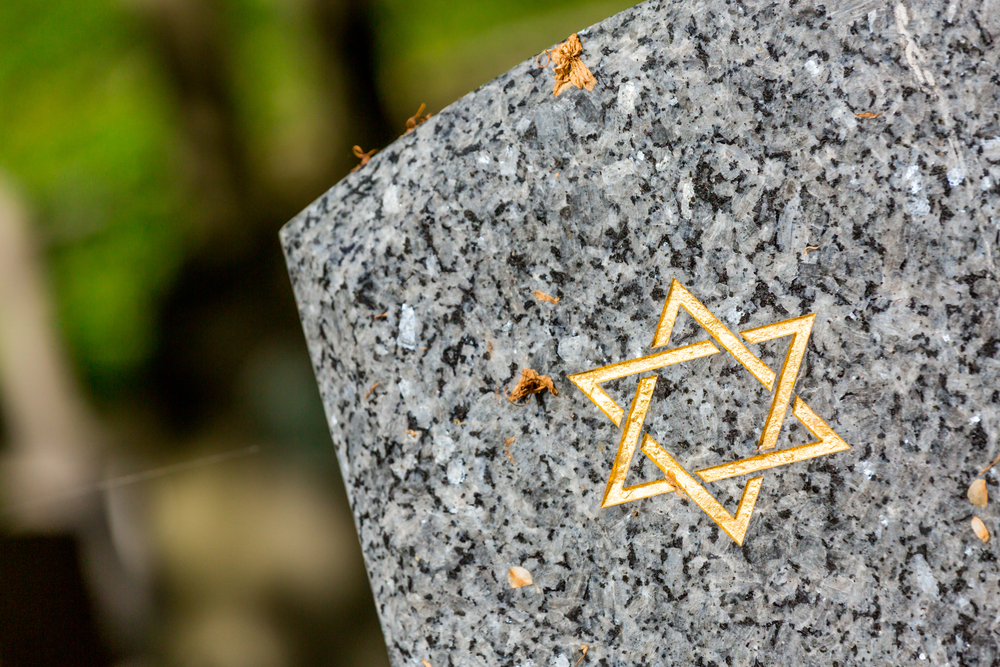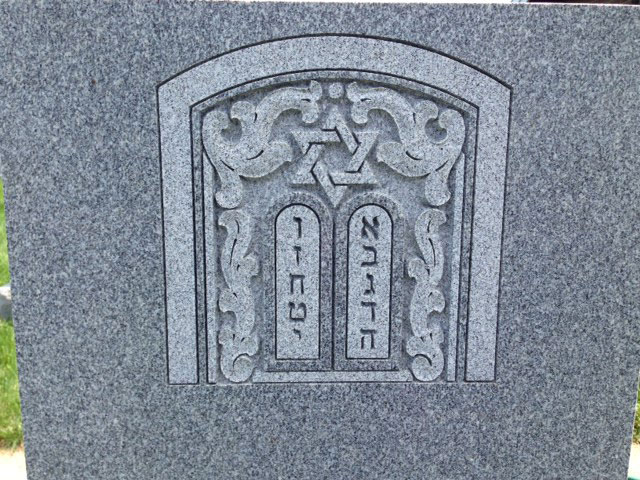
In the Jewish tradition, it’s customary to make arrangements for a loved one’s funeral and burial immediately following death. This can be an emotionally distressing time, between contacting family members, friends, all while coping with your loss. And, while pre-planning your Jewish monument is the ideal route, this is not always a financial or logistical possibility. Ordering a Jewish monument that will serve as a final representation of your loved one’s time in life is imperative. In this blog post, we’ll describe the various steps involved in designing this monument.
1. Check on Jewish Cemetery Regulations
As you make arrangements for your loved one, you’ll likely explore the possibility of burial in a few cemeteries. Jewish cemeteries tend to have rather strict rules regarding the type of monuments that can be put in place. Some cemeteries permit double Jewish monuments, while others prohibit this. Additionally, some Jewish cemeteries will not permit headstones of certain materials. So, before settling on a cemetery, you should also confirm that you will be able to place your headstone there.

2. Explore the Various Types of Jewish Headstones
There are multiple different styles of headstones, and depending on the regulations of the cemetery you selected, you may be able to use one or more.
- Upright Jewish Monuments: The most common style of headstone, the upright monument is what tends to come to mind when people think of a headstone. This Jewish monument style is available in several materials. While somewhat of a standard, upright Jewish monuments may also be considered too large for some cemeteries.
- Slant Monuments: Slant monuments are a proportionately smaller version of upright monuments. They still stand upright, but do not leave the same amount of room for text as upright monuments. And, while you can include some text, it may not be as large as it would be on a larger monument.
- Footmarkers: Rather than being raised above the ground, foot markers are placed directly in the ground, with the text of the monument facing the sky. As the smallest type of Jewish monument, foot markers are the only monument permitted in some cemeteries without ample space. So, for families looking to bury their loved one in a cemetery with space regulations, this can be the ideal choice. Foot markers are also the most affordable Jewish monument option.
- Benches: While it may not be a direct replacement for a Jewish monument, memorial benches are a meaningful way to remember a loved one. When placed in or around your home, it can serve as a friendly reminder of the individual.
- Mausoleums: This expensive burial option is not as common now as it once was, but is a very honorable way to remember your loved ones.
3. Determine Your Budget
Unfortunately, the ideal Jewish monument may lie outside of your budget. After investigating price points and cemetery space availability, you’ll need to consider the financial aspect of this process. These are some of the costs that you should take into account:
- Burial plot
- Cost of memorial
- Funeral
- Headstone personalization
When corresponding with a Jewish headstone company, feel free to mention your budget. Once they have this number in mind, the salespeople can guide you toward a solution that fits this price range.
4. Select a Jewish Headstone Supplier
Next, you should select a company to purchase the Jewish headstone from. This is an important decision, as the quality of the headstone can vary based on the supplier. Before making this decision, be sure to review the quality of their previous work. The right Jewish headstone supplier will have examples, reviews, and be eager to make a positive impression.
5. Decide Which Material Your Loved One’s Headstone Should Be
Granite, marble and bronze are the most popular Jewish headstone materials. The material can have an impact on the appearance of the headstone. However, there are other variables that you should also consider when selecting the material.
Durability should be a major factor in this decision. Granite is the most durable material, and for that reason, is a common choice. Over time, weather tends to damage all Jewish headstones, regardless of the other conditions. While granite will last much longer, you will likely need to have it repaired at some point.

6. Jewish Headstone Finish
In addition to selecting the material, another aesthetic choice is deciding which finish the headstone should be. Most Jewish monument companies offer several different finishes. And, the finish of the headstone may also have an impact on its long-term durability.
7. Choosing an Epitaph for the Jewish Headstone
The epitaph of the Jewish headstone can truly capture the essence of the deceased individual. It should serve to describe the individual in a positive light, and convey their best attributes or accomplishments.
The source of an epitaph can vary. For some individuals, it may make sense to find a quote from the Torah that is fitting. For others, a literary quote may be a fitting addition. Song lyrics may also be a fitting choice. Regardless, be sure that the Jewish headstone epitaph describes the deceased individual well.
8. Other Inscriptions and Font
In addition to the epitaph, there will likely be plenty of other text on your loved one’s Jewish headstone. All headstones should contain an inscription with vital information like the name, birth and death dates. But, many headstones also feature other information. For example, most headstones also describe the relationships that the deceased individual held. Because of this, you should pay close attention to the font (or fonts) that the headstone utilizes. Some traditional families also choose to include the Hebrew name. A qualified headstone company will help you make this decision.
9. Jewish Symbols
Finally, choosing headstone symbols is another important aspect of this process. Often, Jewish headstone symbols stand as a symbol of one’s commitment to God and their family. They also serve as a beacon of support.

Jewish Headstones Long Island
At Fox Memorials, we understand that ordering a monument is stressful. Over the years, our staff have helped many people to make sense of these options and create the ideal monument. We can guide you through this process and ensure that you have all of the information you need at each step.


